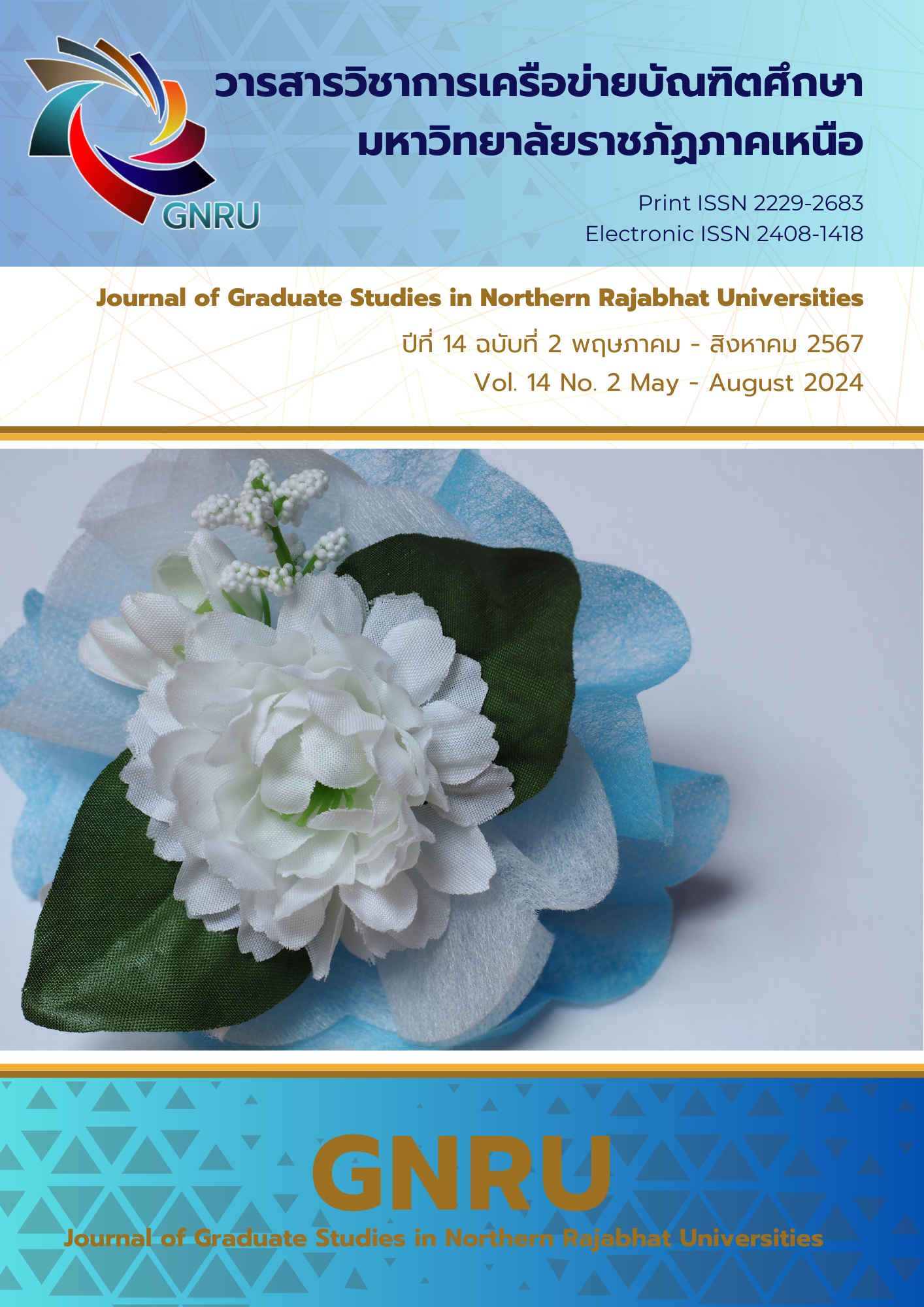5 INTEGRATED MARKETING COMMUNICATIONS DEVELOPMENT FOR ECOTOURISM DEVELOPMENT FOR ETOURISM MARKETING PROMOTION WITH BRAND PERSONA: CASE STUDIES OF PHATO DISTRICT AREA AND PITAK ISLAND COMMUNITY, CHUMPHON PROVINCE
Main Article Content
Abstract
The research aims (1) to study circumstances surrounding tourism-related marketing communications, and (2) to create the development guidelines for integrated marketing communications that are appropriate for ecotourism for promoting e-tourism marketing with brand persona, using the area of Phato District and Koh Phithak Community in Chumphon Province. Qualitative research was utilized in its design with a target group of 34 people, consisting of 20 tourists, and 14 villagers and community leaders. Data was collected through interviews using a semi-structured interview form. Moreover, documentary evidence and non-participation observation methods were used to analyze the data using content analysis, thematic coding analysis, critical analysis, and triangulation. According to the research findings to address the first objective, the conditions surrounding tourism-related marketing communications of the case studies were suitable.
Still, there was a lack of diversity in content and communication channels that would be accessible and attractive and stimulate feelings to create a desire to travel regularly. In addition, to address the second objective, it was found that the development process should involve collaboration between both the community and the experts. To create a brand persona for each location, applied tourism marketing psychology with the analyzed data to find out what each group of tourists has expectations, needs, and wants to see through the e-market to create a brand persona for each location to create a distinctive personality, able to create media that will send messages to the audience when they decide to travel.
Article Details
References
Aaker A. D., & Joachimsthaler E., (2000). The brand relationship spectrum: The key to the brandarchitecture challenge, California Management Review, 42(4), 8- 23.
Afroz, N., & Mahmud, S., (2017). Analyzing the problem and prospects of ecotourism : A review on Bangladesh. IOSR Journal of Business and Management, 19(5), 59-65.
Alam, S.H., Ahmed, R.R., Hashem E, R.H., Salleh, N.Z.M., Vasa, L., Delibasic, M., Abrham, J. (2022). Creating a positive impact through sustainability: Understanding the different practice. Transformations in Business & Economics, 21(2), 121-146.
Blamey R.L., (2001). The Encyclopedia of Ecotourism : Principles of Ecotourism. CABI.
Cater, E., (2004). Ecotourism: Theory and Practice. Wiley Publication.
Dimitriou, C. K. (2017). From theory to practice of ecotourism: major obstacles that stand in the way and best practices that lead to success. European Journal of Tourism Hospitality and Recreation, 8(1), 26-37.
Dimitrious, C. K. (2000). Ecotourism: A different approach. Tourism & Economy, 27(264), 120-124.
Kazandzhieva, V., & Santana, H. (2019). E-tourism : Definition, development and conceptual framework. Tourism: An International Interdisciplinary Journal, 67(4), 332-350.
Ke, L., (2012). The weakness and innovation of China eco-tourism. International Conference on Solid State Devices and Materials Science, 953-957.
Kitchen, J. P., & Schultz, E. D., (1997). Integrated marketing communication in U.S. advertising agencies : an exploratory study. Journal of Advertising Research, 37(5), 7-18.
Phau, I., & Lau, C. K., (2000). Conceptualising brand personality: A review and research propositions. Journal of Targeting, Measurement and Analysis for Marketing, 9(1), 52-69.
Sawagvudcharee, O., & Chaemchamrat, R., (2024). Engaging the local community in cultural tourism development: A case study of Tham Khao Plu Temple, Pathio District, Chumphon Province. Journal of Southern Technology, 17(1), 27-36.
Shasha T. Z., Geng, Y., Sun, Hp., Musakwa, W., & Sun L., (2020). Past, Current, and Future Perspectives on Eco-Tourism: A Bibliometric Review Between 2001 and 2018, Environmental Science and Pollution Research, 27, 23514-23528.
Ministry of Tourism & Sports. (2023). https://www.mots.go.th/news/category/706
Wood, M., (2002). Ecotourism: Principles, Practices & Policies for Sustainability. United Nations Environment Programme, United Nations Publication, France.


